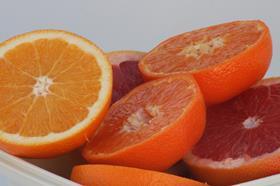
Comments about the recently implemented Economic Partnership Agreement (EPA) between the Southern African Customs Union (SACU) and the European Union (EU) have drawn reaction from South Africa’s citrus industry.
“In seeking solutions for a poor start to the Northern Hemisphere 2018/19 season it is important to start with the facts,” said the Citrus Growers’ Association’s (CGA) Justin Chadwick. “As responsible exporters, South Africa will work with exporters and importers from other countries to ensure that we give the consumer what they want.
“Some talk about the ‘post truth era’, others talk about ‘fake news’,' Chadwick continued. “When it comes to the truth many don’t allow it to mess up a good story.”
Chadwick said the recently signed and implemented Economic Partnership Agreement (EPA) between the Southern African Customs Union (SACU) and the European Union (EU) included a change to the import conditions for oranges. This means that over ten years the tariff free period would drop from 16 per cent to zero for the period 17 October to the end November. “All other citrus tariffs remained unchanged.”
He points out that the EPA does not include any changes to the mandarin tariffs. “Reports that the EPA impacted on Northern Hemisphere markets for mandarins are therefore poorly researched.”
In 2018, the South African citrus industry took a decision to halt exports of oranges to the EU in mid-September, thus foregoing any benefit from the EPA.
“Reports that the EPA impacted on Northern Hemisphere markets for oranges are therefore incorrect,” confirmed Chadwick.
He also noted that during December 2016 and again in December 2018, citrus originating in the Northern Hemisphere was labelled “product of South Africa” in some retail stores in Europe.
“This makes assessing the origin of fruit at final sale point in Europe problematic. Labelling regulations need to be tightened to ensure that consumers (and producers) know the origin of their purchases.”
Chadwick has previously discounted claims that South Africa could be held responsible for the poor start to the Spanish season.
“Although citrus exporters from different countries do compete in the market, we are also, together, competing with alternatives to citrus,” he said
“If a consumer cannot get the desired quality (size, colour, sugars etc.) of citrus fruit they will turn to other, non-citrus alternatives. With a growth spurt in citrus production around the world now is the time for all suppliers to rally together and stimulate demand for citrus products. The market belongs to the consumer,” he concluded.
If one looks at the start of the Southern Hemisphere table grape season, which resulted in reported depressed prices, Chadwick has a point. Cheaper table grapes will compete well with citrus. The Southern Hemisphere stonefruit season also did not set the market alight.



